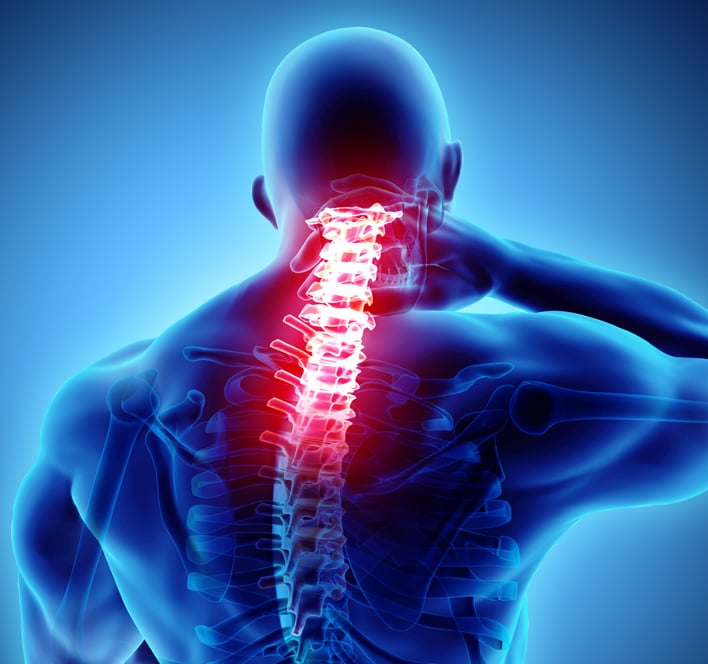Neck pain or stiffness can be related to various factors involving muscles, bones, and soft tissues in the neck and shoulders. However, the cervical spine can also be a factor when evaluating neck pain or stiffness. Arthritis on the cervical spine bones itself can cause signs of neck arthritis. However, it can also cause other cervical spine conditions, such as bone spurs, spinal stenosis, spondylolisthesis, and disc degeneration, all of which are indicative of possible neck arthritis as well.
A cervical orthopedic specialist at NJ Spine & Orthopedic is an expert on neck arthritis, the various cervical spine conditions, and how they all relate to one another. Our doctors can help inform you if your cervical spine condition is related to neck arthritis and how we can help relieve your symptoms.
What Happens to the Cervical Spine to Cause Neck Arthritis Symptoms?
The degeneration of bone and cartilage in the cervical spinal section can create other problems and symptoms. For example, bone spurs can result in nerve irritation and pinching. Bone spurs are made when the cartilage is completely worn away and bone grinds on each other. More bone may grow to compensate for the lost cartilage to help support the vertebrae.
However, the additional bone growth may make canals that nerves and the spinal cord pass through too narrow, resulting in limited motion or nerve pressure that could lead to severe and chronic pain in the neck.
Disc degeneration is also a form of neck arthritis. The discs themselves lose their cushioning capabilities, can become herniated easily, and disc space is compromised, threatening nearby nerves. Symptoms of disc degeneration can vary, from mild with hardly any symptoms to severe pain in the neck.
Signs That May Indicate Neck Arthritis
Some signs of neck arthritis may mimic other conditions, such as muscle strain or stiffness. However, if you experience symptoms for more than a few weeks, you may be experiencing signs of neck arthritis. Signs of neck arthritis can include:
- Chronic pain and stiffness in the neck
- Muscle spasms in the neck or shoulders
- Headaches
- Muscle weakness in the arms, hands, or fingers
- Numbness or tingling in the arms, hands, or fingers
- Decreased range of motion or limited mobility
- Grinding or popping noise or sensation when you turn your neck
The grinding or popping noise or sensations when you move your neck can come from bones rubbing together, a sure sign of neck arthritis. Also, when the bones grind against each other without the protection of cartilage, this can limit the mobility of your neck and can be very painful. If other conditions resulting from the arthritis are causing nerve irritation and pinching, signs of neck arthritis, like muscle weakness or numbness, will become evident over time.
Reach Out to the Neck Arthritis Specialists at NJ Spine & Orthopedic For Neck Pain Relief
At NJ Spine & Orthopedic, our spinal osteoarthritis specialists are able to reduce or relieve your pain when confronted with osteoarthritis in the joints of the spine and in the neck. If osteoarthritis is causing chronic or debilitating pain in your neck, don’t wait to reach out to our cervical spinal specialists.
At NJ Spine & Orthopedic, our orthopedic cervical spine specialists can apply treatments or minimally-invasive surgery techniques to relieve pain resulting from osteoarthritis in the joints of your cervical spine. If neck arthritis is causing chronic or disabling pain in your neck, reach out to our skilled and supportive cervical spine specialists at NJ Spine & Orthopedic by calling (866) 553-0612 or completing our contact form to make an appointment.

